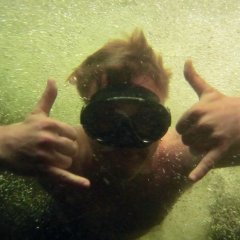Want an awesome mountain getaway this weekend? You can’t do much better than the Senjojiki Cirque in the Chuo Alps of Nagano. Located within the Central Alps Prefectural park, the cirque tops out at around 2900m in elevation and gives easy access to Kiso-Komagatake Peak, the highest mountain in the Chuo Alps, and several other mountains. Worried about the effort needed to get up that high? Don’t be! The Komagatake Ropeway will whisk you to the 2,612m base of Senjojiki Cirque in just 8 minutes. There are of course hiking trails up to the cirque for those who want a proper hike, but the ropeway exists for those who want a head start on climbing or who just want to enjoy the view. At 2,612m the Senjojiki Station is the highest station of any kind in all of Japan. It also boasts my favorite view of Mt. Fuji. We’ve all seen the pictures of Mt. Fuji rising above the Fujigoko Lakes in Yamanashi, but have you ever seen just the highest snow covered cone of Fuji rising above the Minami Alps right next to Kitadake Peak, the second highest mountain in Japan?
In summer wildflowers carpet Senjojiki’s meadow with color and the temperatures are far more comfortable than those in big cities. Autumn ignites the mountainsides from about the end of September or the beginning of October to the beginning of November. The fiery leaves start at the top of the mountains and work their way down. The contrast of red and yellow leaves amidst the green pines and gray-white rocks is nothing short of stunning. Winter brings tons of snow and Senjojiki’s high elevation retains that snow until as late as June. Starting at the end of April the Komagatake Ropeway’s parent company puts up a T-bar lift, making Senjojiki Cirque the highest and latest operating ski area in all of Japan. If you didn’t get your fill of skiing and riding during the regular season, fret not, the T-bar operates until the end of May, snow permitting. Hiking and riding one of the many steep chutes of the cirque will treat advanced riders to a good time and the tourists to a good show. With the applause they gave me you would have thought I’d just won an Olympic gold medal.
Once you’ve finished adventuring and come down from the mountains, relax in one of the many hot springs (Kobushi no Yu is a local favorite), check out some art work at the Komagane Kogen Art Museum, or take a stroll around the grounds of Kozenji Temple (famous for its weeping shidare-sakura and its autumn colors). There’s plenty to do.
The Senjojiki Cirque and the Komagatake Ropeway are in Komagane City in central Nagano. Komagane Station is accessible only by a local train on the Iida Line. Even using special express trains, the run from Tokyo or Nagoya to Komagane will take a minimum of ~4 hours at a cost of about ¥7,000. The fastest and most economical route is to take a highway bus. Buses are available from the Keio Bus Terminal in Shinjuku for ¥3650. Buses are also available from Nagoya (¥2980) and Osaka (¥4880). Once you’re in Komagane, buses run to and from Komagane Station and Shirabi-Daira Ropeway Station every 20 minutes from as early as 5am during peak summer hours. Last bus down is at 5:10pm in the summer, and 4:10pm in the winter. The ropeway runs from 8am-5pm in the summer and from 9am-4pm in the winter. A roundtrip bus/ropeway ticket from Komagane Station is ¥4200. Those who come by highway bus can get off at the Komagane IC Mae highway bus stop and then walk across the street to the Nyotai-Iriguchi bus stop (¥4060 round trip). You can also get off at the Komagane Bus Center on the Suzuran Dori and get the bus to the ropeway from there (¥4000 roundtrip). Those who come by car can park at the Suga no Daira Bus Center for ¥500/day and get the bus from there, cars are not allowed on the road to the ropeway (¥3800 roundtrip).
Looking to stay the night? The top of the ropeway is also a hotel, the highest in Japan. Rooms average about ¥16,000/person/night (varies by season) and offer views of the cirque or the Minami Alps and Komagane City in the Tenryu River Valley, fine dining, and a Japanese style bath with natural spring water from the mountains. Cheaper accommodations are available off of the mountain but they can’t offer that amazing view. Happy travels!



































